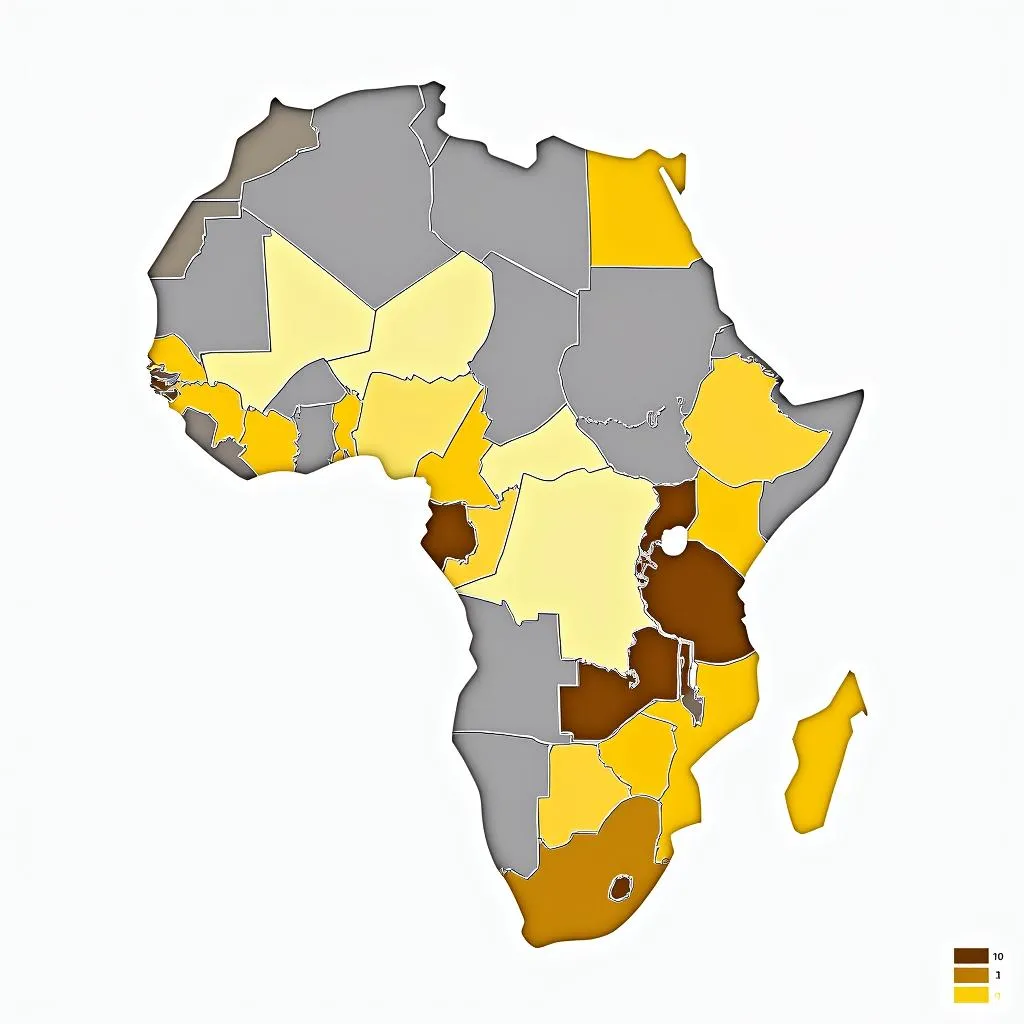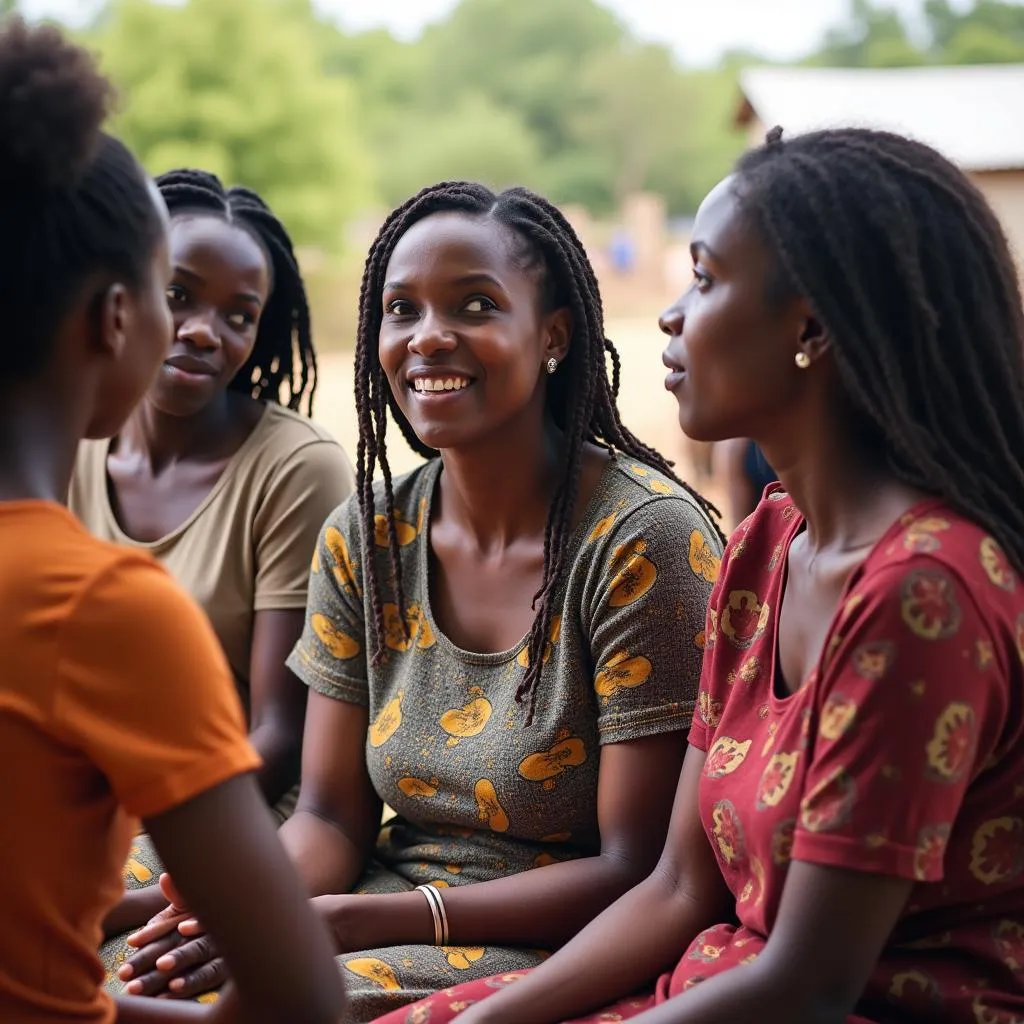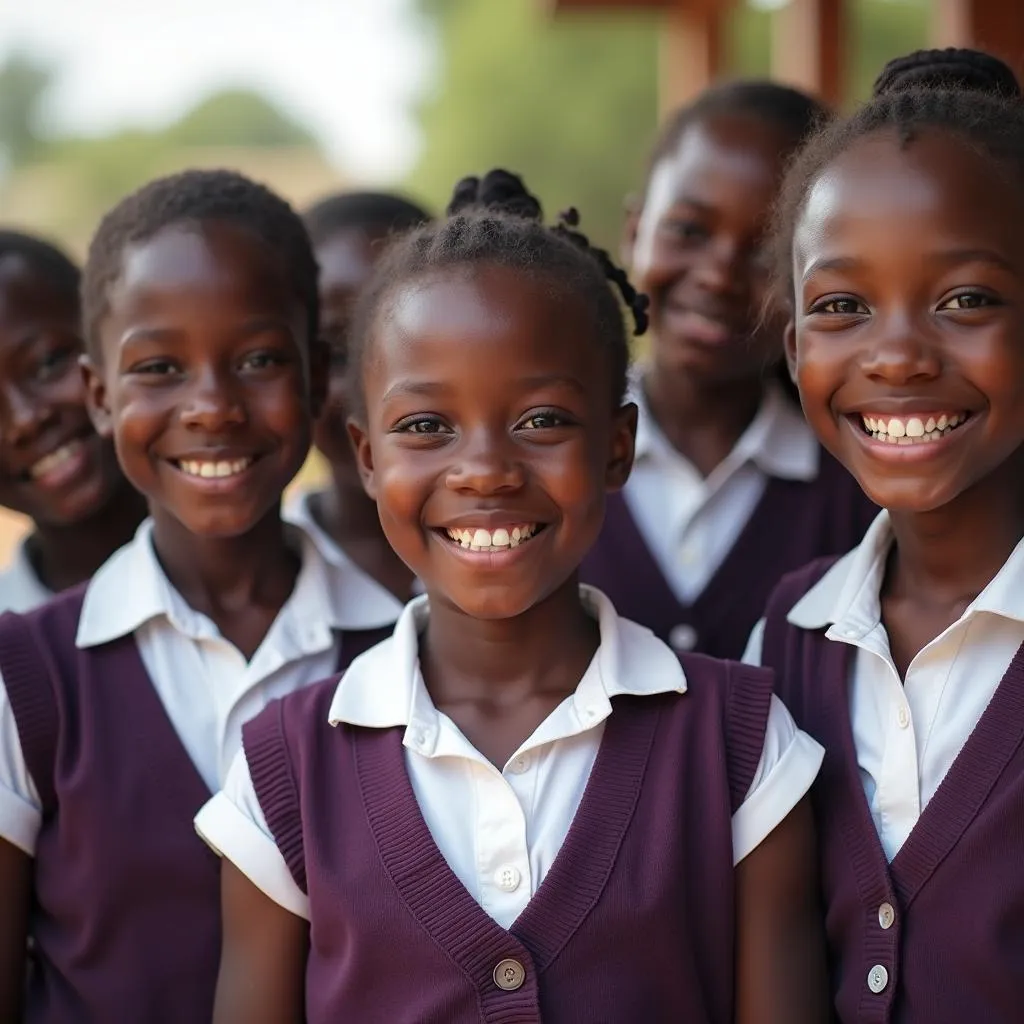African Ladies Circumcision: Understanding a Complex Cultural Practice
Female genital mutilation (FGM), often referred to as “African Ladies Circumcision,” is a complex issue deeply rooted in cultural beliefs and practices across parts of Africa. While the term “circumcision” might seem to draw parallels with male circumcision, FGM involves procedures that can cause significant physical and psychological harm to girls and women. It’s crucial to approach this subject with sensitivity, understanding that while it’s a deeply ingrained tradition in certain communities, its harmful effects are undeniable.
 Map of FGM prevalence in Africa
Map of FGM prevalence in Africa
Deconstructing the Term “Circumcision”
The use of the word “circumcision” in the context of FGM can be misleading. Unlike male circumcision, which typically involves the removal of the foreskin, FGM encompasses a range of procedures. These can include partial or total removal of the clitoris, cutting or removing the labia, and narrowing the vaginal opening. These procedures offer no medical benefit and carry serious health risks.
The Why Behind the Practice: Cultural Significance and Misconceptions
FGM is often viewed as a rite of passage, marking a girl’s transition into womanhood. It’s frequently linked to:
- Preserving chastity: Some communities believe FGM controls a woman’s sexuality, ensuring virginity before marriage and fidelity afterward.
- Social acceptance: In societies where FGM is the norm, girls who undergo the procedure are seen as eligible for marriage and integrated into society.
- Religious beliefs: While no major religion mandates FGM, some communities associate it with religious purity or beliefs about cleanliness.
 African women engaged in a community discussion
African women engaged in a community discussion
It’s vital to recognize that these justifications often stem from deeply entrenched cultural norms and misinformation about female sexuality.
The Real Cost of FGM: Health and Human Rights
The consequences of FGM can be devastating and long-lasting:
- Physical health: Severe pain, infections, complications during childbirth, infertility, and even death are potential risks associated with FGM.
- Mental health: Trauma, PTSD, anxiety, depression, and sexual dysfunction are common psychological impacts.
- Human rights violation: FGM is recognized globally as a violation of the human rights of girls and women, reflecting gender inequality and control over female bodies.
Moving Towards Eradication: Education, Empowerment, and Enforcement
Ending FGM requires a multifaceted approach:
- Education: Open dialogues within communities about the harmful effects of FGM, debunking myths and promoting alternative rites of passage, are crucial.
- Empowerment: Empowering women to make informed choices about their bodies and challenging traditional power structures are essential steps.
- Enforcement: Governments must enact and enforce laws prohibiting FGM, holding perpetrators accountable and ensuring access to support services for survivors.
 A group of young African girls in school uniforms smiling brightly
A group of young African girls in school uniforms smiling brightly
Conclusion
Addressing “African ladies circumcision,” requires sensitivity, accurate information, and a commitment to upholding the rights and well-being of girls and women. By understanding the cultural context, acknowledging the harms, and actively promoting change, we can work towards a future where every girl and woman is free from this harmful practice.

